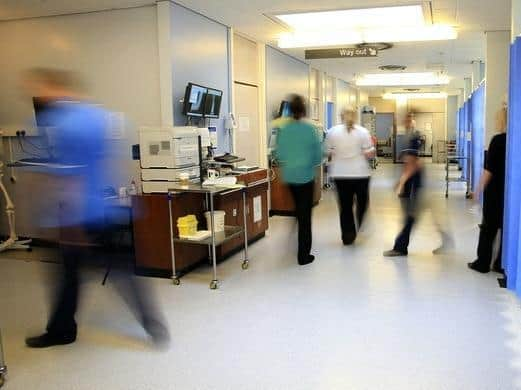More than 15,000 working days lost due to Covid at West Herts Hospitals
and live on Freeview channel 276
The Royal College of Nursing warned hospitals can "ill-afford to lose more staff" amid the predicted second wave, warning that rapid testing must be a priority as cases start to rise once more.
NHS Digital data shows 15,765 working days were lost due to Covid-19 absence at West Hertfordshire Hospitals NHS Trust between March and May.
Advertisement
Hide AdAdvertisement
Hide AdIt means the virus was responsible for 49% of the 32,254 total days lost due to sickness over the three months – one of the largest proportions among NHS trusts in England.


Most Covid-related absences were reported in April – during the peak of the first wave – when 9,493 days were lost.
The figures include staff who contracted the virus, as well as those who had to quarantine because a family member showed symptoms, because of travel restrictions or because they had been advised to by contact tracers.
They do not show how many NHS staff were affected.
The NHS has urged caution over the figures, as trusts were not required to use the new coronavirus absence code or instructed on how to use it when it was introduced in March.
Advertisement
Hide AdAdvertisement
Hide AdAcross England, more than 1.3 million days of work were lost in the NHS due to coronavirus-related sickness between March and May.
Miriam Deakin, director of policy and strategy at NHS Providers, said it was not clear how many of the absences were avoidable.
She said: “These figures show how the real impact of Covid-19 on NHS staff absences continued into the summer even as the initial surge in cases abated.
"Nearly one in five days lost due to absence during May were Covid-related.
Advertisement
Hide AdAdvertisement
Hide Ad"Providing a safe environment for staff and patients is an absolute priority for trusts which is why capacity for regular testing is so important."
The Royal College of Nursing's England director, Mike Adams, said some staff members are still reporting having to drive long distances for tests and delays in getting results.
"When wards and clinics are crying out for nursing staff, they can ill-afford to lose more staff. They must follow the self-isolation guidelines but only rapid and priority testing will get them back to work," he added.
Health Secretary Matt Hancock recently announced that staff providing acute clinical care would be prioritised for tests, followed by people in care homes and other NHS staff.
Advertisement
Hide AdAdvertisement
Hide AdHealth think tank The King's Fund said the pandemic has highlighted the "exceptional commitment" of NHS staff to ensuring the health system can cope, but warned it has taken a toll on their mental health.
Suzie Bailey, director of leadership and organisational development, said: "There are already significant shortages of staff including nurses, widespread vacancies and an acceptance of excessive workloads.
"There is significant concern about staff wellbeing as hospitalisations increase."
Anxiety, stress, depression or other psychiatric illness was the most reported reason for sickness absence in May, accounting for 28% of all days lost that month.